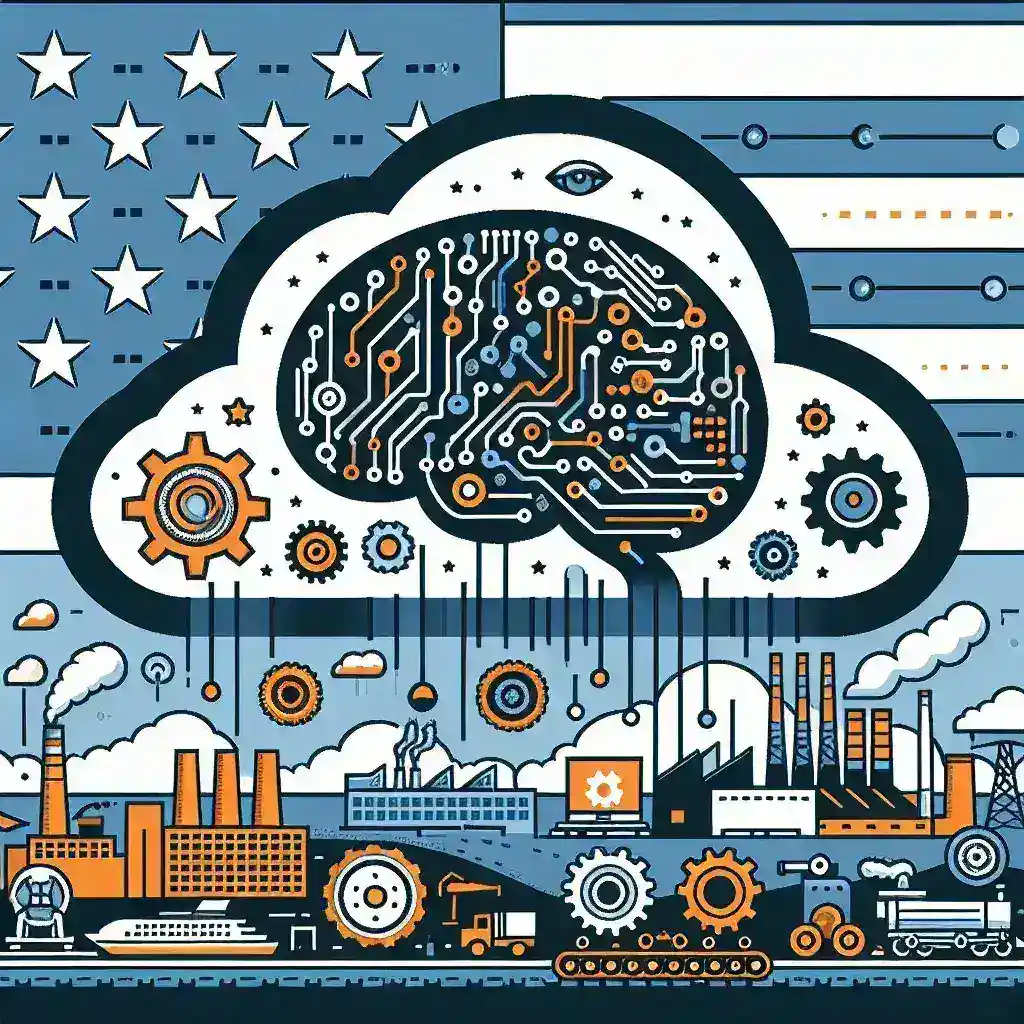Introduction
In an era where technology is reshaping industries at an unprecedented pace, Google Cloud has announced a groundbreaking initiative aimed at transforming supply chain analytics for U.S. manufacturers. With the integration of artificial intelligence (AI) into their cloud services, manufacturers can enhance operational efficiencies, streamline processes, and gain deep insights into their supply chains.
The Rise of AI in Supply Chain Management
The manufacturing sector has long grappled with challenges such as demand forecasting, inventory management, and logistics optimization. Traditional approaches often fall short in addressing these complexities. This is where AI comes into play. By leveraging machine learning algorithms and vast datasets, AI can analyze trends and patterns that humans might overlook.
Historical Context
Historically, supply chain management has evolved from manual processes to automated systems, yet many manufacturers still rely on outdated methodologies. The introduction of AI represents a significant leap forward, enabling companies to transition from reactive to proactive supply chain strategies.
Google Cloud’s New Offering
Google Cloud’s latest offering in AI-based supply chain analytics combines advanced machine learning techniques with the power of cloud computing. This initiative is designed to provide U.S. manufacturers with tools to:
- Predict Demand: Utilize historical data to forecast future demand accurately.
- Optimize Inventory: Maintain optimal stock levels to reduce holding costs and avoid stockouts.
- Enhance Supplier Collaboration: Facilitate real-time communication and data sharing with suppliers to improve responsiveness.
- Improve Logistics Efficiency: Analyze transportation routes and methods to minimize delays and costs.
The Benefits of AI-Based Supply Chain Analytics
Integrating AI into supply chain analytics offers numerous advantages for U.S. manufacturers:
1. Improved Accuracy
AI algorithms can process vast amounts of data quickly, providing more accurate predictions than traditional methods. This accuracy helps manufacturers make informed decisions regarding production schedules and inventory management.
2. Enhanced Efficiency
By automating routine tasks, manufacturers can free up valuable resources, allowing teams to focus on strategic initiatives. This efficiency can lead to faster turnaround times and reduced operational costs.
3. Data-Driven Insights
AI provides actionable insights derived from data analysis, enabling manufacturers to identify trends, anticipate challenges, and seize opportunities in real-time.
4. Better Risk Management
With predictive analytics, manufacturers can anticipate disruptions in the supply chain, be it due to market fluctuations, natural disasters, or supplier issues. This foresight allows for proactive measures to mitigate risks.
Challenges and Considerations
While the adoption of AI-based supply chain analytics offers numerous benefits, it is not without challenges:
1. Data Quality
The effectiveness of AI relies heavily on the quality of data. Manufacturers must ensure they are collecting accurate and relevant data to maximize the benefits of AI technologies.
2. Integration Complexity
Integrating new AI systems with existing infrastructure can be complex and may require significant investments in both technology and training.
3. Change Management
Shifting to an AI-driven approach necessitates a cultural change within organizations. Manufacturers need to foster a mindset that embraces technology and continuous improvement.
Future Predictions
As AI continues to evolve, its role in supply chain management is expected to expand. Innovations in AI models, coupled with advancements in cloud technology, will likely lead to even more sophisticated analytics capabilities. In the coming years, we may witness:
- Greater Personalization: Customized solutions tailored to specific manufacturing needs.
- Increased Automation: More processes in the supply chain becoming automated, reducing human intervention.
- Enhanced Sustainability: AI helping manufacturers adopt sustainable practices by optimizing resource usage.
Real-World Examples
Several manufacturers are already witnessing significant improvements through AI-based analytics:
1. General Electric
General Electric implemented AI in its supply chain to optimize inventory and reduce costs. The company reported a 10% reduction in inventory expenses after adopting predictive analytics.
2. Procter & Gamble
Procter & Gamble has utilized AI to enhance its demand forecasting accuracy, leading to better alignment of production schedules with market demand.
Conclusion
Google Cloud’s launch of AI-based supply chain analytics marks a pivotal moment for U.S. manufacturers. By harnessing the power of AI, these companies can not only improve operational efficiency but also gain a competitive edge in a rapidly changing marketplace. As technology continues to advance, embracing AI will be essential for manufacturers looking to thrive in the future.

